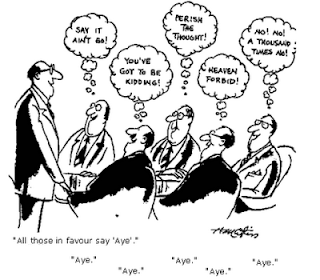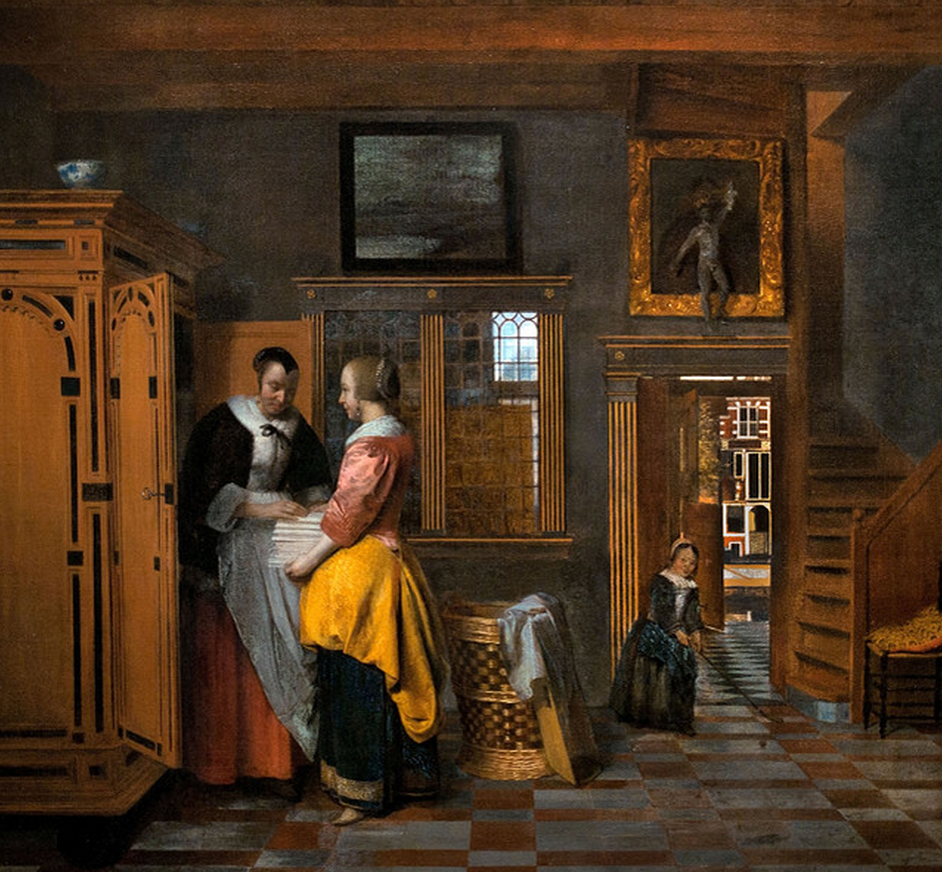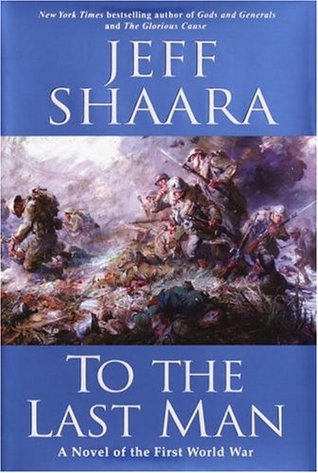You're too young to remember the best western of all time...
251 2017-04-22 11:09:15
Re: Say the first word that comes to mind... (1,634 replies, posted in TheNextBigWriter Premium)
252 2017-04-20 20:43:23
Re: Say the first word that comes to mind... (1,634 replies, posted in TheNextBigWriter Premium)
aibohphobia
253 2017-04-20 12:40:01
Re: Say the first word that comes to mind... (1,634 replies, posted in TheNextBigWriter Premium)
homonym
254 2017-04-19 13:15:12
Re: Say the first word that comes to mind... (1,634 replies, posted in TheNextBigWriter Premium)
255 2017-04-19 11:57:40
Re: Say the first word that comes to mind... (1,634 replies, posted in TheNextBigWriter Premium)
Cockamamie
256 2017-04-19 05:51:58
Re: Say the first word that comes to mind... (1,634 replies, posted in TheNextBigWriter Premium)
Stopcock
257 2017-04-18 22:49:01
Re: Say the first word that comes to mind... (1,634 replies, posted in TheNextBigWriter Premium)
lackadaisical
258 2017-04-18 18:02:14
Re: Say the first word that comes to mind... (1,634 replies, posted in TheNextBigWriter Premium)
Conformity
259 2017-04-17 14:51:15
Re: Say the first word that comes to mind... (1,634 replies, posted in TheNextBigWriter Premium)
Bitter
260 2017-04-17 14:50:53
Re: Say the first word that comes to mind... (1,634 replies, posted in TheNextBigWriter Premium)
Bitten
261 2017-04-13 16:07:45
Re: Anyone want to play again? (60 replies, posted in TheNextBigWriter Premium)

“We’re gonna need all the towels Doris. The consumptive little bitch won’t stop trying to reach the spittoon atop the wardrobe from the doorway.”
262 2017-04-13 09:19:32
Re: WHAT ARE YOU READING RIGHT NOW? (326 replies, posted in The Write Club -- Creative Writing and Literature Discussions Group)
Dill Carver wrote:The Jacket of 'To the Last Man'
The painting is a work of art (IMO)
Absolutely. As if it's still moving. I was at Kennesaw Mountain recently and stood near one of the trenches the Confederates used when they were trying to keep the Northern soldiers out of Atlanta. The Union was extremely close to this trench (which is still faintly visible). Here's a painting of the Battle of Kennesaw. Each image seems to be moving.
The Shaara's have some great book Jackets;

Gods and Genrals
263 2017-04-13 00:26:42
Re: WHAT ARE YOU READING RIGHT NOW? (326 replies, posted in The Write Club -- Creative Writing and Literature Discussions Group)
Have you read All Quiet on the Western Front? It's been on my radar for a while, and I'm wondering if you liked it...
I first read it in my teens, at school, a Literature assignment. I've read it again since. I've also seen the movie with John boy Walton in the lead role. I like it but the novel is translated and the movie is American and although the moral message comes across, I don't know how much is lost in translation from the original German.
My favourite WW1 era novel (so far) is 'Birdsong' by Sebastian Faulks. It is less cliché than 'All quiet' -- I've read Birdsong a couple of times too. I'll read it again someday.
Hemingway's, A Farewell To Arms is a favourite of mine to.
'All Quiet on the Western Front' is a vehicle created to shock a generation, a device written to introduce them to the horror and general pointlessness of the WWI conflict. It is German POV, which is interesting because most other media is from the 'Allied' side; the victors getting to dominate the storytelling. It is a great book, but for me it is as shallow as it is effective. It documents a soldier's story, from school-leaver recruit to hardened Western-front veteran and it is all about the war experience along the way. Both 'Birdsong' and 'All Quiet on the Western Front' are not a documentation of the war, but more the story of characters where the war is backdrop. The war figures large in both stories of course, but essentially the story is more human as there is passion within adversity as the characters try to live and love despite the conflict.
Personally, I'd go for 'Birdsong' and 'A Farewell To Arms' before 'All Quiet...' any day.
An ACW battlefield trail holiday is on my bucket list.
I've been to most of the central European WWI battlefield sites, memorials and major cemeteries.
264 2017-04-12 23:52:24
Re: Anyone want to play again? (60 replies, posted in TheNextBigWriter Premium)
What is occurring?
265 2017-04-12 23:51:22
Re: Anyone want to play again? (60 replies, posted in TheNextBigWriter Premium)

266 2017-04-12 17:29:40
Re: WHAT ARE YOU READING RIGHT NOW? (326 replies, posted in The Write Club -- Creative Writing and Literature Discussions Group)
The Jacket of 'To the Last Man'
The painting is a work of art (IMO)
267 2017-04-12 16:45:52
Re: WHAT ARE YOU READING RIGHT NOW? (326 replies, posted in The Write Club -- Creative Writing and Literature Discussions Group)
François Félix Nogaret's The Mirror of True Events (original name; Le miroir des événemens actuels, ou La belle au plus offrant, histoire à deux visages).
I'm liking the look of 'The Underground Railway'x
268 2017-04-11 17:19:23
Re: WHAT ARE YOU READING RIGHT NOW? (326 replies, posted in The Write Club -- Creative Writing and Literature Discussions Group)
corra wrote:Dill Carver wrote:I've reached a section that has grated and annoyed until it has gotten to the point that I'm starting to hate the book. I might toss it Tess style, unfinished into the next convenient bin. In fact I feel that I definitely will. I'll never read another Shaara and that is for sure.
What happened?
Jeff Shaara writes in that time honoured fashion of a North American; where one would suppose that his work reads fine within North America, yet sounds very arrogant and inappropriate outside of the USA.
He’ll routinely refer to the Scots as the Scotch and the British Army as the English Army. And Britain, England; and Ulster, North Ireland… ad infinitum.
This is like a Brit referring to the USA as Texas and the indigenous populace as Bourbon.
However, this is so common as to be accepted. (Charles_F_Bell of this very site explained the situation very well; being the defining force and world authority, if an American author coins a word, misspells, abbreviates or adapts an existing ‘foreign’ word then it becomes valid within ‘American English, which is the essential version of English). This is what led to that nut of fried dough, the doughnut, becoming the donut and crème brûlée morphing into, brolee. It’s why flammable objects became inflammable etc. etc.
It’s not so much that… although Shaara is heavy on the Americanisms that he applies to Europe. It comes out very strange within the dialogue of a supposed English Infantryman of the Royal Leicestershire Regiment circa 1916; who with fervent Bronx-edged conviction pledges his life to his home and regiment when he clearly doesn’t seem to know what actual country he is from or what army he belongs to. Stranger still, the dialogue of the Prussian Sargent (Vizefeldwebel… All of the German and French military are awarded the nearest comparable American rank or title so as not to upset or confuse the reader with the reality of words they’ll never comprehend like, ‘Hauptmann’ and ‘Cuirassier’ where ‘German Captain’ and ‘French Cavalryman’ are all the reader is credited with being able to understand).
Not that, (annoying as it is). But the fact that Shaara is promising to faithfully represent the historical facts. In truth he does just that in terms of accuracy with the times and dates of events. The problem for me is that he totally opinionizes from within his narrative voice and from within his characters. All of the British are arrogant uncaring inbred narcissist imperialists, the French are bungling treacherous agricultural idiots whilst the Germans are mindless repressed autonomon who can only act within the scope of authoritative orders.
The Americans, they are sparkling sophisticated free-thinkers, self-aware, unrepressed, liberal minded, intellectually, politically and culturally superior in every respect. Shaara writes from the POV of John J Pershing and he is a demi-god. So superior to his bungling, inane British, French, German and Russian counterparts that he is elevated to super-human status. He is so astute, can clearly interpret and pre-empt every mistake or bad decision that any other leader makes or is about to make. Pershing is immaculate in every sense of the word. He came, he saw, he conquered. Not a foot wrong or a hair out of place. Not only did he win the war singlehandedly he exposes every non-American in the world as being inferior, incapable and stupid.
The First World War, the struggle suffering and demise of millions of people, trashed.
269 2017-04-10 23:47:42
Re: WHAT ARE YOU READING RIGHT NOW? (326 replies, posted in The Write Club -- Creative Writing and Literature Discussions Group)
...By the third read, I got a little tired of the lists of punk rock and art and food. It felt a little overdone. The story itself is still really clever though.
Funny how a book can change with wear.
I'm a good way in to To the Last Man by Jeff Shaara and I seriously liked it, but I've reached a section that has grated and annoyed until it has gotten to the point that I'm starting to hate the book. I might toss it Tess style, unfinished into the next convenient bin. In fact I feel that I definitely will. I'll never read another Shaara and that is for sure.
270 2017-04-07 22:40:08
Re: WHAT ARE YOU READING RIGHT NOW? (326 replies, posted in The Write Club -- Creative Writing and Literature Discussions Group)
This happened with The Time Traveler's Wife! I found that film quite disappointing.
My eldest daughter, a big fan of the novel The Time Traveler's Wife! was equally disappointed with the movie, I remember.
She pressured me for months to read the novel and I took it away on my travels but lost it.
271 2017-04-07 22:28:09
Re: WHAT ARE YOU READING RIGHT NOW? (326 replies, posted in The Write Club -- Creative Writing and Literature Discussions Group)
In response to your remarks on "don't be swayed by the opinionist", I thought this would give you a grin:
You recall how the 'left wingers' romped on me? Some said with pity that it was unfortunate that I was only interested in plot and character and background. Because, it seems, I missed all the political and economic implications inherent in the period of which I wrote. Others, in wrath, shouted that I seemed totally unaware of 'mass movements' (I've been wondering just what they were). Others that I was too small-minded to realize that there were sociological matters that I entirely overlooked.
Well. The English reviews have come in and, for the most part, are as good as to take my breath away. But one of them says, 'It is a pity that Miss Mitchell cannot handle character and plot as superbly as she handles mass movements.' Another, after a whacking good review, remarks that it is obvious Miss Mitchell is far more interested in the economic and sociological side of the period of which she writes than she is in mere story. Another announces shrewdly that I am, at heart, a sociologist. It seems that there is some slight disagreement.
- Margaret Mitchell
A very astute woman, that Miss Margaret.
272 2017-04-07 22:24:50
Re: WHAT ARE YOU READING RIGHT NOW? (326 replies, posted in The Write Club -- Creative Writing and Literature Discussions Group)
But Dickens wrote A Christmas Carol, which is all magic and utterly enchanting and brilliant. Creepy talking candles and hooded men with no eyes, eh?
'A Christmas Carol' would be an exception to the rule, if the fantasy elements were not confined within Scrooge's feverish dreams. A man in the real world has fantasy dreams... he dosen't exist within a fantasy world.
And what about The Tempest (sorcerers), Macbeth (witches), Hamlet (a ghost)?
Shakespeare's plays use a degree metaphor and symbolism that you wont find within a Dickens novel.
273 2017-04-07 10:31:35
Re: WHAT ARE YOU READING RIGHT NOW? (326 replies, posted in The Write Club -- Creative Writing and Literature Discussions Group)
corra wrote:The problem is a guy named Mycroft has invented a way to get into books and change the story lines,.....
Mycroft represents Movie-makers. This is exactly what Movie writers do to novels.
corra wrote:However, no matter how many times I try, I cannot bring myself to read Tolkien. I believe he was writing in Lord of the Rings about World War I. I read that somewhere. My brother says I should read it. I prefer a Lincoln biography, or an actual World War One memoir (Testament of Youth.)
Surely this is simply the thing about there only being a few original plots. Lord of the Rings is nothing like WW1 -- other than it is an armed conflict. I've read the Tolkien and have read dozens of non-fiction books upon the WW1. The comparison between Lord of the Rings and WW1 is so high-level and lazy (convenient and coincidental) that it infuriates me. You can just as easily say that Lord of the Rings is like any war, simply comparing a mass-armed conflict to a book about a mass-armed conflict is pathetic. Tolkien is bound to have been influenced by WW1 - he lived through it.
Don't be swayed by opinionists corra; especially me. They'll tell you that 'The Lion the Witch and the Wardrobe' is based upon the Bible or that Frankenstein is about God or the symbolism of Sherlock Holmes is defining Christianity... etc. They wish!! They are just made up stories (the novels and the religions).
In truth, you don't want to read Lord of the Rings because of the elves and gnomes and midgets and wizards and dragons; the talking trees and pixies and the unfeasible magic.... That I understand. My kids made me read it to them (because it is conventional) but there were a thousand other novels I'd have rather read them and eventually I converted them to Dickens. The magic within Dickens is the miracle of life and mysteries of the human condition. He doesn't need to cheat with a story by inventing imaginary creatures, wizards and fairies. Dickens is in touch with the real thing.
274 2017-04-07 09:56:04
Re: WHAT ARE YOU READING RIGHT NOW? (326 replies, posted in The Write Club -- Creative Writing and Literature Discussions Group)
corra wrote:Dill Carver wrote:The Girl on the Train by Paula Hawkins
I had to read what the hype is all about.
I picked it up about a month ago for the same reason! Don't say what happens! Well, I suppose that defeats the purpose of this forum, but I'll avoid any spoilers, if you please.
I had to return it to the library mostly unread because we have a limited time to borrow new releases at my library, and I'd barely had the time to make a dent before they claimed it back! It's on the rotation for another try soon...
Forgot to mention that I did get this one borrowed again and completed recently. I enjoyed it.
I saw the movie recently and felt it was a complete let-down compared to the novel.
Within the novel Hawkins, is able to write from three alternating POV's and timelines. Rachel, the ex-wife, Anna, the current wife, and Megan, the main victim (although in truth they are all victims). (Classic Dickens 'A Tale of Two Cities formula BTW ![]() ) The dialogue is often inner-thought and the thrill of the novel is mainly the swirling psych as the same scenes are viewed or interpreted very differently from the three different POVs (I'd argue five POV's because Rachel has a sober POV and an inebriated POV and Megan has an in-situ POV and her retrospectively narrated diary POV) . The inner-thought, time-line switching and POV replay is extremely hard to get over in a movie format (unless of course the film is the 'English Patient').
) The dialogue is often inner-thought and the thrill of the novel is mainly the swirling psych as the same scenes are viewed or interpreted very differently from the three different POVs (I'd argue five POV's because Rachel has a sober POV and an inebriated POV and Megan has an in-situ POV and her retrospectively narrated diary POV) . The inner-thought, time-line switching and POV replay is extremely hard to get over in a movie format (unless of course the film is the 'English Patient').
For me, the transition of the story from the UK to the USA for the bigger demographic of movie audience and the 'flattened' storyline definitely lead to a case of the film not living up to the book.
If I'd not read the novel before I'd watched the movie, I'd conclude it to be a mildly entertaining American suspense mystery film.
Many films never live up to the novel. Poor movie and TV watchers, they are missing out on so much (IMO). ![]()
275 2017-04-06 13:07:32
Re: WHAT ARE YOU READING RIGHT NOW? (326 replies, posted in The Write Club -- Creative Writing and Literature Discussions Group)
Do you prefer Jeff Shaara's work to Michael Shaara's?
I enjoy both. I like the embellished historical novel. They both seem to use extensive research and stick as closely to the recorded facts and known characteristics as possible, whilst filling in the dialogue. Good stuff. Truth is often stranger and more engaging than fiction... even when fiction includes talking dragons, invisible gnomes, wizards and singing swords.


